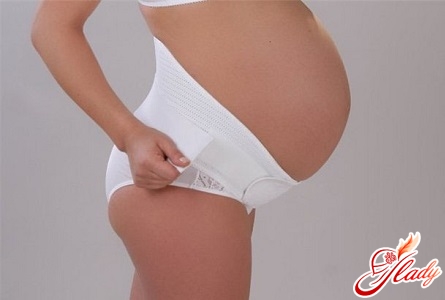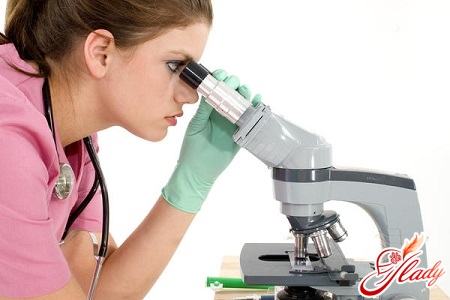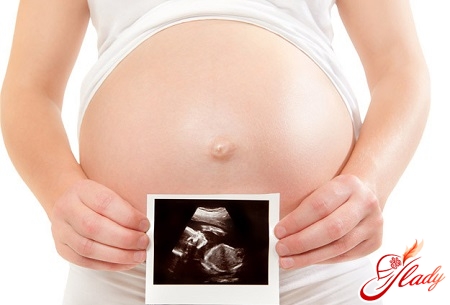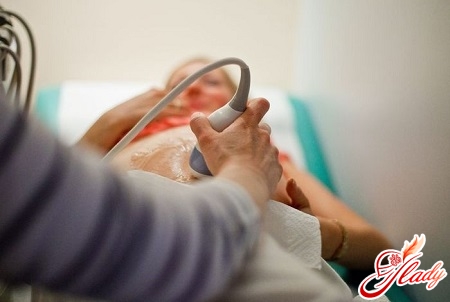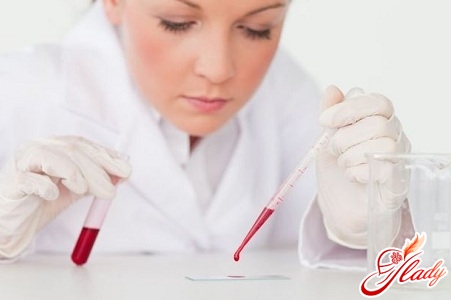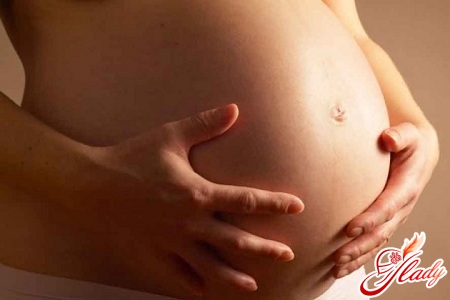 Pregnancy is the most joyful, but at the same timetime and the most exciting period in the life of any woman. Well, why it is joyful - it is not difficult to guess. But why is it the most exciting? Because the expectant mother has plenty of reasons to worry. And it is no coincidence - not only should the expectant mother protect the baby from all negative influences from the outside, but her own body is also capable of rebelling. Sadly, but true - many pregnant women face a variety of diseases. And this is understandable. In order for the body not to try to reject, the immune system decreases. This process is completely natural and necessary for the normal course of pregnancy. However, this medal, like any other, has two sides. And the second is not nearly as positive as the first. Due to the decrease in the immune system, a pregnant woman very often faces a variety of diseases. For example, cystitis during pregnancy is a very common phenomenon. Moreover, cystitis is the main sign of decreased immunity. According to gynecologists, cystitis and pregnancy - old "sworn" friends. More than half of all expectant mothers face this disease. Moreover, those women who have experienced cystitis before pregnancy are at much greater risk of developing cystitis during this important period of their lives than everyone else. Strictly speaking, any expectant mother has a chance of getting cystitis, so it is very important to get all the information possible regarding cystitis.
Pregnancy is the most joyful, but at the same timetime and the most exciting period in the life of any woman. Well, why it is joyful - it is not difficult to guess. But why is it the most exciting? Because the expectant mother has plenty of reasons to worry. And it is no coincidence - not only should the expectant mother protect the baby from all negative influences from the outside, but her own body is also capable of rebelling. Sadly, but true - many pregnant women face a variety of diseases. And this is understandable. In order for the body not to try to reject, the immune system decreases. This process is completely natural and necessary for the normal course of pregnancy. However, this medal, like any other, has two sides. And the second is not nearly as positive as the first. Due to the decrease in the immune system, a pregnant woman very often faces a variety of diseases. For example, cystitis during pregnancy is a very common phenomenon. Moreover, cystitis is the main sign of decreased immunity. According to gynecologists, cystitis and pregnancy - old "sworn" friends. More than half of all expectant mothers face this disease. Moreover, those women who have experienced cystitis before pregnancy are at much greater risk of developing cystitis during this important period of their lives than everyone else. Strictly speaking, any expectant mother has a chance of getting cystitis, so it is very important to get all the information possible regarding cystitis.
Causes of developing cystitis during pregnancy
Let's first find out what is happeningcause of cystitis during pregnancy. After all, it can't really appear out of nowhere. Of course, it is simply impossible to list and foresee all the provoking factors. But you still need to know the most common ones:
- Chronic cystitis occurring before a woman's pregnancy
As mentioned above, those women whosuffered from cystitis - especially in a chronic form - are much more susceptible to the likelihood of an exacerbation of the disease during pregnancy. Moreover, cystitis will remind you of itself for the first time in the earliest stages of pregnancy. Although you should not despair - the likelihood of the disease is not a guarantee that the disease will definitely overtake you. Prevention of cystitis in most cases allows you to avoid personal acquaintance with this disease. And you need to start carrying out this prevention, naturally, in the earliest stages of pregnancy.
- Changing the hormonal background
During pregnancy, a woman's hormonal backgroundchanges radically, and as a result, the vaginal microflora is disrupted. Most often, this happens in the early stages of pregnancy. Add to this a weakened immune system - a very favorable environment for the development of acute cystitis is formed. By the way, pay special attention to a small but important nuance. As you know, cleanliness is the key to health. But if there is too much cleanliness, health will also be exposed to a certain threat. In this case, we are talking about the cleanliness of the genitals. Of course, hygiene is extremely important, but too frequent washing, and even with the use of inappropriate means, also in almost all cases - sooner or later - leads to that very imbalance of microflora. During pregnancy, the amount of secretion produced by the woman's genitals increases. And women begin to wash themselves even more often, thereby disrupting the microflora and provoking the development of cystitis. Of course, no one says that hygiene is bad. However, do not overuse soap, gels and other products – wash with just water or use wet wipes.
Diagnosis of the disease
In order to prescribe treatment for cystitispregnancy, which will save the expectant mother from the problem, it is necessary to correctly and promptly diagnose the disease. For modern medicine, this is not difficult. Firstly, the doctor relies on the complaints of the pregnant woman. In addition, the woman will be assigned a number of specific studies:
- Urinalysis - both general and Nechiporenko
- Bacteriological culture of urine, which is necessary to identify pathogens.
- PCR is a diagnosis that will help to eliminate the majority of known infections.
If the urine test revealsa large number of leukocytes, and even more so if pathogenic microorganisms are detected (gonococci, staphylococci, streptococci, etc.), the doctor can confidently assume that the woman has cystitis. In addition, the doctor will probably prescribe a study to determine whether the woman has such a problem as vaginal dysbacteriosis. After all, it is this, as mentioned above, that often becomes the main culprit of the subsequent development of cystitis. If dysbacteriosis is detected, the doctor will prescribe the necessary treatment to correct this problem. In addition, in this case, you cannot do without an ultrasound examination of all pelvic organs without exception. This measure is necessary in order to find out whether cystitis is just a concomitant disease of some more serious pathology. Many mothers are afraid of such a study, but in vain - it is absolutely safe for the child. If necessary, if the above methods still fail to reliably diagnose the disease, the doctor may prescribe such tests as cystography or cystoscopy. They can reveal pathological changes in the structure of the bladder - tumors, deformations, the presence of sand and stones, the extent of the inflammatory process. These tests are the most reliable and help diagnose the disease. Do not refuse the examination offered to you under any circumstances. Otherwise, the disease may go unnoticed. It would be a mistake and irresponsible to rely only on the symptoms of cystitis. Firstly, during pregnancy, cystitis can be completely asymptomatic - a woman simply will not notice the existing problem. By the way, this is one of the reasons why doctors require that the expectant mother take a general urine test so often. It is usually believed that this is done solely for one purpose - to determine the presence of protein in the urine. However, in fact, in addition to protein, lab technicians also look for leukocytes and pathogenic microflora. After all, the earlier cystitis is detected, the easier it is to treat it. In addition, in some cases, there may be various other diseases that have symptoms similar to those of cystitis. For example, frequent and painful urination is also characteristic of kidney diseases - for example, pyelonephritis. And only a detailed examination will help to establish the disease. In addition, frequent urination is often associated only with an increasing belly, which presses on the bladder. And acute cystitis has nothing to do with it. By the way, about the symptoms. What are the symptoms of the disease? As a rule, these are:
- Increased urination
When a pathogenic substance enters the bladdermicroflora and a pathological inflammatory process begins to develop, the body tries with all its might to help itself - to wash the infection out of the body. As a result, the urge to urinate begins to appear more and more often. This is the very first sign. But do not forget that a pregnant woman in any case has a much greater number of urinations - so the sign is only indirect. Especially the first and last 10 weeks of pregnancy. In the early stages, in the first 10 weeks, urination appears due to a sharp change in hormonal levels. And in the last 10 weeks - due to the pressure of the uterus on the bladder.
- False urge to urinate
During cystitis, a person oftenexperiences false urges to urinate. The woman feels that she wants to go to the toilet, but urination does not occur. Moreover, during cystitis, such false urges can occur so often that they practically deprive the expectant mother of peace. This symptom is the most typical for cystitis.
- Pain and burning during urination
Another sign is the process of urination.During cystitis, it presents certain difficulties. The sick person feels a strong cutting, pain and burning, especially at the very end of urination. For the expectant mother, every trip to the toilet will be a real torment. A sad prospect, so having noticed such a sign, it is necessary to consult a doctor as soon as possible.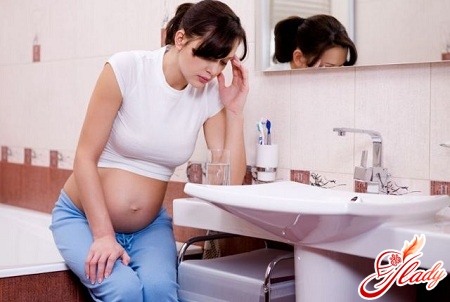
Treatment of cystitis in pregnancy
Symptoms should never be ignored.цистита. Хотя, справедливости ради, следует отметить, что цистит при беременности приносит столько дискомфорта, что терпеть его практически невозможно. Однако лечение должно быть грамотным и своевременным – чтобы полностью избавиться от заболевания, а не просто устранить тот или иной признак. В противном случае цистит у беременных примет хроническую форму течения. А цистит для будущей мамы – далеко не лучший друг и товарищ. Цистит может спровоцировать ряд осложнений – в том числе преждевременные и трудные роды. За ребенка беспокоиться не стоит, так как он в любом случае не пострадает. А вот маме придется несладко – очень часто, при отсутствии своевременного и правильного лечения, бактерии по мочеточникам поднимаются вверх, тем самым провоцируя почечные патологии. А протекать они могут очень и очень остро – без госпитализации в данном случае вряд ли удастся обойтись. Так что острый цистит у беременных – не такая уж мелочь, как кажется. Итак, тот факт, что лечение цистита необходимо – очевиден. Как же лечить острый цистит при беременности? Исключительно под строгим врачебным контролем. Однако, к сожалению, даже врачи очень часто при назначении лекарственных препаратов совершают ошибки. Чаще всего врачи по привычке выписывают стандартные для лечения цистита лекарства. А они зачастую во время беременности противопоказаны. А ими по-прежнему лечат острый цистит… Точнее, пытаются вылечить. Поэтому, как говорится, на бога надейся, но и сам не плошай – перед применением того или иного препарата обязательно внимательно изучите вкладыш. И в том случае, если в списке противопоказаний вы обнаружите беременность, не стесняйтесь – немедленно скажите об этом своему врачу. Ведь цистит во время беременности можно вылечить и без этих медикаментов. Строго говоря, во время беременности вообще не стоит принимать никаких лекарственных препаратов. Даже самый безопасный препарат, принимаемый будущей мамой, попадает в организм ребенка. И сложно предсказать, как среагирует кроха на тот или иной препарат. К счастью, многие женщины прекрасно знают об этом и стараются избегать приема препаратов. Но существует еще одна – не менее распространенная – ошибка. Будущая мама лекарства, назначенные врачом, не принимает. Естественно, цистит продолжает ее беспокоить. И она надеется вылечить цистит при помощи различных средств народной медицины – в частности, трав. Однако и этот способ лечения представляет весьма серьезную опасность. Многие травы, даже самые целебные, во время беременности женщине категорически противопоказаны – их влияние на организм весьма негативное. Связано это с тем, что во многих травах содержатся вещества, способные помешать нормальному течению беременности – вызвать выкидыш или преждевременные роды. Вряд ли кто-то решится рискнуть жизнью своего малыша, правда же? Да и при помощи трав лечить острую форму заболевания бесполезно – они эффективны только в том случае, если у человека хронический цистит. А хронический цистит – прогноз малоприятный. Поэтому необходимо начинать лечить болезнь самом начале заболевания. Потому что именно в том случае, если лечить цистит в начале, риск развития хронической формы течения болезни минимален. Так что же делать? Во-первых, успокоиться. Безвыходных ситуаций, как известно, не бывает. На сегодняшний день существует прекрасная схема – лечение цистита у беременных путем инстилляции мочевого пузыря. Суть данного лечения заключается в ведении непосредственно в мочевой пузырь больной женщины лекарственных средств, призванных устранить патогенную микрофлору и устранить воспалительный процесс. Конечно же, подобная процедура может привести к возникновению определенных дискомфортных ощущений. Но, во-первых, они длятся очень непродолжительное время. А во-вторых, польза настолько очевидна, что стоит и потерпеть. Ведь лекарства проникают непосредственно в мочевой пузырь, а значит, в организм ребенка оно не попадает. И любые последствия исключены, так как влияние лекарств минимально. Да и результат будет заметен уже на вторые сутки после начала лечения – все неприятные симптомы моментально исчезнут. Несколько следующих процедур устранят воспалительный процесс, укрепят стенки мочевого пузыря, восстановит слизистую оболочку. Советуем почитать:




